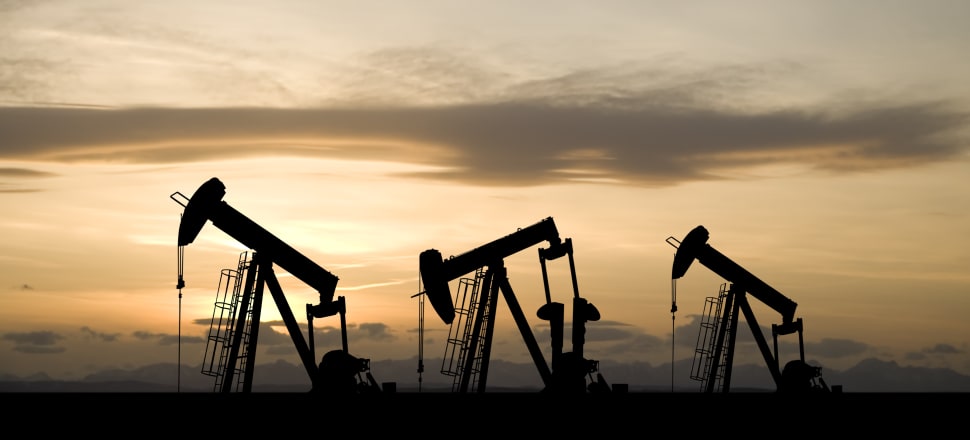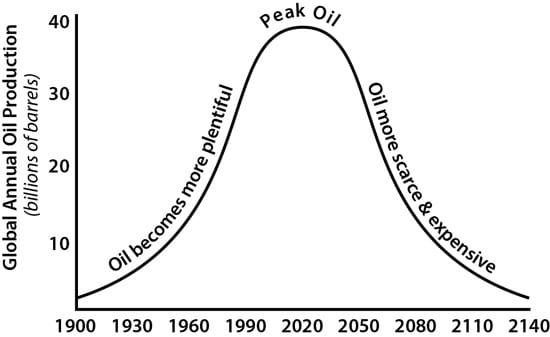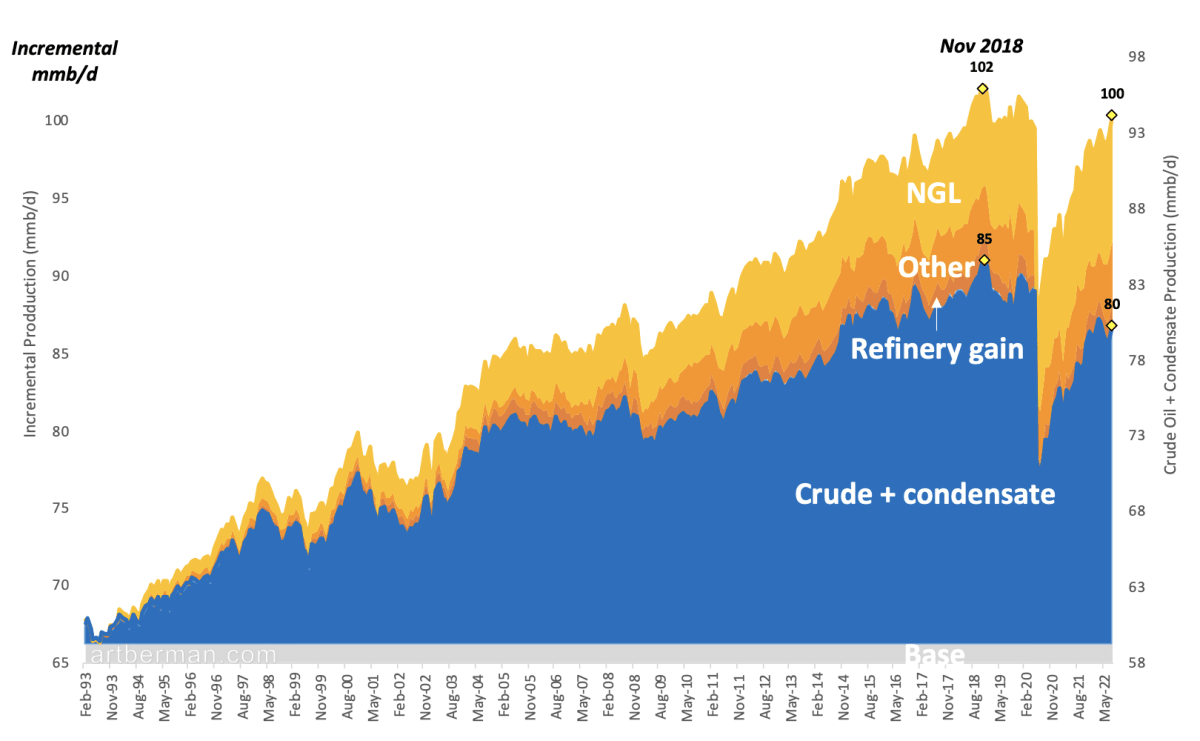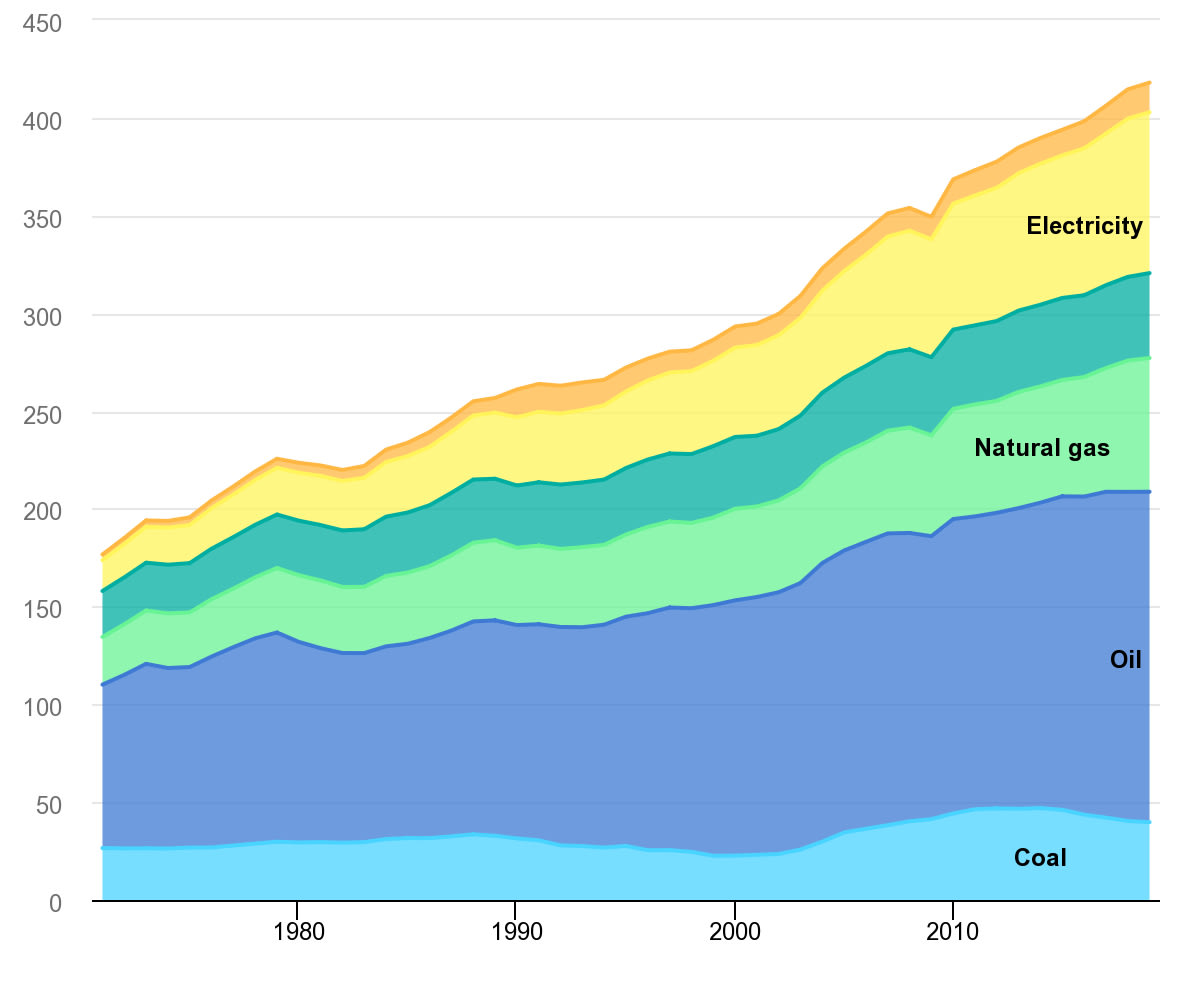
We need to reduce our energy consumption and embrace 'degrowth’, in which we redesign the economy to put human and environmental wellbeing at its centre
Opinion: In years gone by, you may have heard the words ‘peak oil’, often intoned with a sense of foreboding, warning us that before long oil would run out and things would never be the same.
But we don’t hear the term so much any more. Is that because the 'doomsters' were all wrong? Because, in fact, we have plenty of oil – and, even better, it’s never going to run out?
Unfortunately – or fortunately, if you care about what we are doing to our climate and biosphere – the answer to all those questions is ‘No’. As Isaac Asimov said in his influential address ‘The future of humanity’ in 1974:
When I was 13, I started thinking …
Major premise: The Earth’s volume is finite.
Minor premise: The total volume of coal and oil on the Earth is less than the total volume of the Earth.
Conclusion: The volume of coal and oil are finite.
He was of course right. It is impossible to have an infinite resource on a finite planet.
Yeah sure, but didn’t they say oil would peak in 2018, and before that, sometime around 1970? That didn’t happen – we have more oil than ever! Well yes … and no.
And while we are working hard to transition to renewable sources of energy, this transition will need to be powered by huge amounts of fossil fuels – accelerating its decline
Projections from even mainstream business pundits signal that the production of crude oil – the best quality, most energy-dense type of oil – is close to peaking, if it hasn’t already. And what is happening now is exactly what the architect of the peak oil concept, the US geoscientist M King Hubbert, predicted in the 1950s. Because the oil still left in the ground is deeper or in harder-to-reach places, it is taking much more energy to extract it than in the days of gushing oil wells. This means the net energy return is much lower than in the 1930s. And the oil now left in the ground is generally less energy-dense than it was 50 or even 20 years ago, meaning that when we burn it to create energy, we get less energy out of it. The shape of this trajectory is shown in the graph below.

But a growing percentage of what the international agencies call ‘oil’ is actually not oil at all. A whopping 34 percent of all ‘oil’ consumed globally in 2021 was natural gas liquids and other fuel liquids such as ethanol, most commonly made from corn. This compares with close to 0 percent in the early 1990s, as seen in the graph below ('NGL and Other'). In the US, which is a more mature petroleum economy, the percentage of ‘non-oil oils’ is just over 40 percent.

OK, whatever – who cares whether oil is actually ‘oil’ or how much energy it takes to get it out of the ground – as long as I can still drive my car and as long as trucks can keep running, does it really matter?
Well, yes it does, because it all points to the reality (which Asimov worked out when he was 13) that all resources on a finite planet are also finite, including oil, and will at some stage run out. And while we are working hard to transition to renewable sources of energy, this transition will need to be powered by huge amounts of fossil fuels – accelerating its decline.
READ MORE:
* Food security at the heart of our cost of living crisis
* Who’s to blame for the energy crisis?
* Hydrogen rush could shift world energy order
The media is littered with good news stories about the latest renewable energy wonder project (space-based solar technology etc), but renewable energy still only makes up a tiny sliver of our overall global energy consumption. As of 2020, solar and wind energy combined made up only 1.6 percent of all energy consumed globally. This is because just as quickly as the renewable energy expands, our overall consumption of energy grows.

And even when this new renewable energy does become available, it is really only good for generating electricity. But most of what powers our economy and society is not electricity, it is liquid fuel and heat energy. This is shown in the graph below.

And, even if we are successful in switching fully to renewable energy (and converting all our non-electric transport and industrial processes to electric with yet-to-be proven-at-scale technology), there is that pesky issue of net energy again. Because to create renewable energy it takes much more energy than it did in those heady days of gushing oil wells.
To create the same amount of energy for a growing population and growing global economy, we would need an energy sector many times bigger than the one we have today, using resources, such as rare earth metals, that we don’t have enough of.
But that’s OK, Elon Musk has it covered with his mission to colonise Mars – there are sure to be some useful materials we can mine and bring back (on our corn ethanol-fuelled rocket ships). On the other hand, if we don’t want to put our faith in Musk and his reckless vanity project, we might want to think about how to reduce our consumption of energy and the Earth’s other finite resources.
This basic idea is encapsulated by ‘degrowth’, which proposes that we need to redesign the economy to put human and environmental wellbeing at its centre. Degrowth proponents say this can be achieved through the redistribution of existing wealth (in the past two years, the richest 1 percent of people netted two-thirds of new global wealth created) and the reprioritisation of government spending on the things we really need, enabling us to live fulfilled lives with fewer resources. Our own history suggests this is possible: in the 1960s, an era not remembered for deprivation or austerity, New Zealanders consumed only a third of the energy per person that we do today.
For those who think degrowth sounds like a radical, subversive term that is dangerous to even contemplate – think again: Air New Zealand has among its advisers a degrowth academic – Professor Tim Jackson. Maybe Air NZ executives have seen these graphs and know what lies ahead – that it is not more exponential growth enabled by a one-off bonanza of cheap and plentiful fossil fuel.
The sooner we grasp the reality of energy descent, the sooner we can make an ordered, just transition to a future in which we use less but have more – of the things that really matter.







